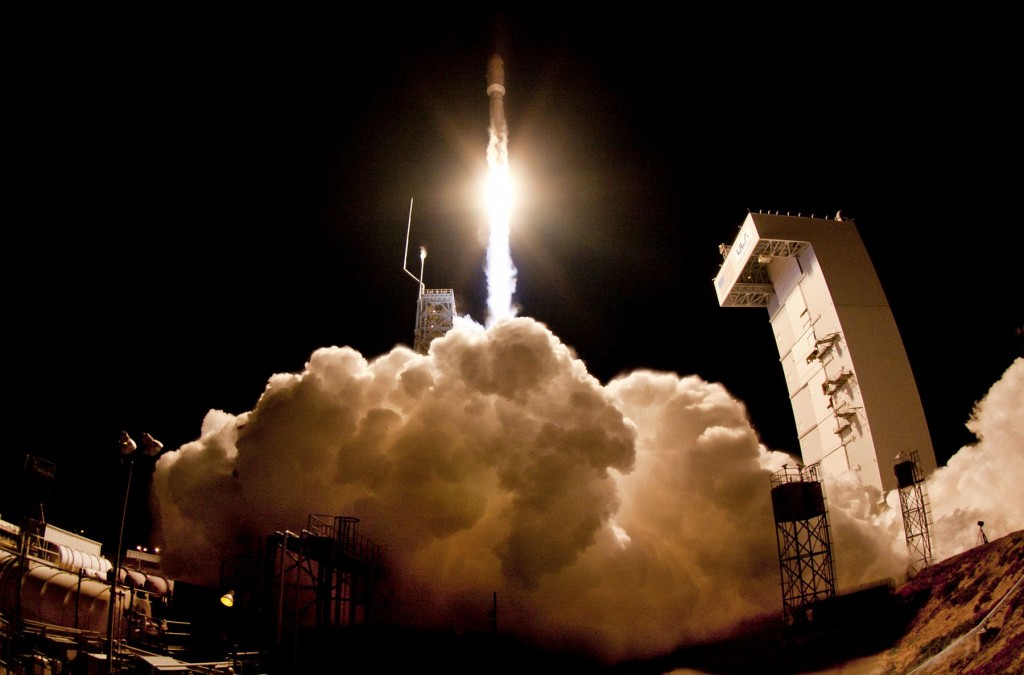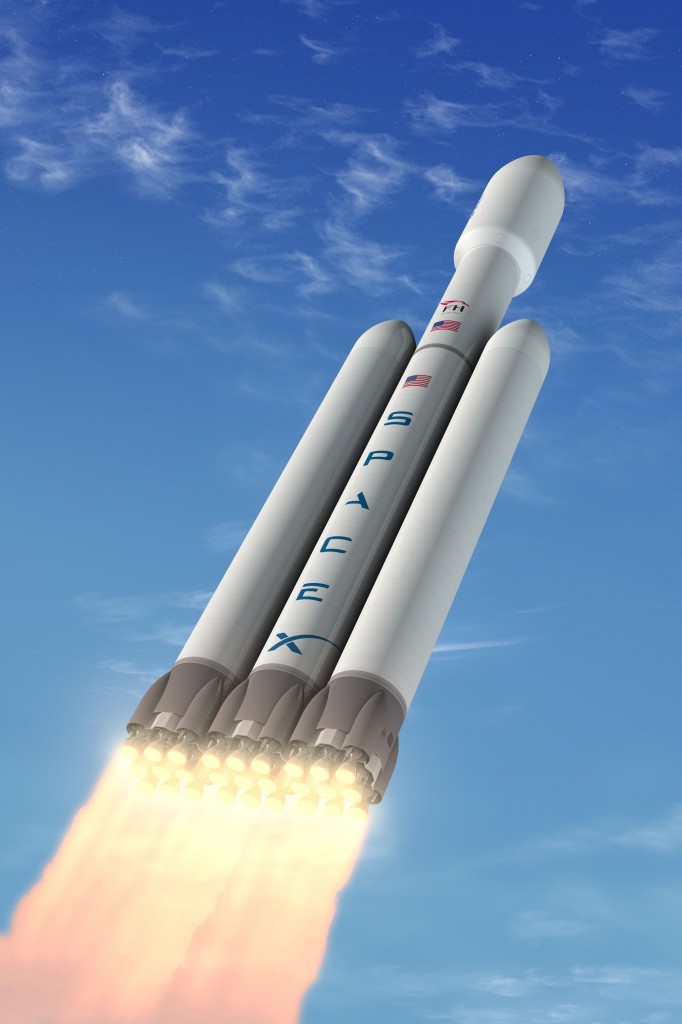SpaceX Turns Up Heat On ULA; Sen. Feinstein Writes SecDef
Posted on
WASHINGTON: Ever since the Air Force restructured its launch contracts for the Evolved Expendable Launch Vehicle (EELV) program with the United Launch Alliance and SpaceX, the underdog, Elon Musk, has cried foul and is pressing his case on Capitol Hill and in the media.
The stakes got higher this morning during a sparsely attended hearing of the Senate Appropriations defense subcommittee when Sen. Dianne Feinstein, chairman of the Senate Intelligence Committee and a powerful members of the SAC-D, made Musk’s argument that the Air Force has reduced launch competition through its restructuring. She told Air Force Secretary Deborah Lee James that she and six other senators (one of them a Republican, Sen. Roger Wicker) had written Defense Secretary Chuck Hagel to press him to ensure vigorous competition.
Here’e the crux of the senatorial argument:
“We strongly believe this proposal undermines the Air Force’s previous plan to begin to compete launches in 2015 and urge you to take all necessary steps to ensure the Air Force fulfills its commitment to provide meaningful competition opportunities this year for award in fiscal year 2015 and beyond.”
Bear in mind that Feinstein is particularly important to this debate. Not only is she a cardinal — a member of the appropriations committee — but from her perch on the intel committee she wields considerable power over the National Reconnaissance Office (NRO), builder and operator of the nation’s spy satellites, as well as the National Security Agency (NSA) and the National Geospatial Intelligence Agency (NGA). ULA and SpaceX are the companies that get paid to loft those often school-bus sized satellites into geostationary orbit. Until now, it’s been ULA, an unholy combination of defense giants Lockheed Martin and Boeing. SpaceX is extremely eager to get some of those contracts.
Feinstein and her fellow senators argue that “the Air Force’s recent budget proposal includes plans to compete zero Air Force missions in 2015 and to reduce the total number of missions to be competed from 14 to 7 during fiscal years 2015 – 2017.” This, they say, violates standing policy and “should be immediately reviewed.” That, of course, is exactly what Musk wants to happen so that some of those launches may be reinstated, giving him an earlier chance to get his launch vehicles certified. That would bring substantial amounts of cash flow to his organization. While SpaceX may be cheaper, no heavy launch is ever cheap. The cost of a single ULA launch under the EELV program is around $200 million.
To give their arguments some heft, the senators remind Hagel that the “EELV program has incurred massive cost overruns since the United Launch Alliance was formed in 2006. Since 2011 alone, the amounts budgeted by the Air Force for an average of six satellite launches per year has grown by 60 percent.”
They kindly note that “the unit price to the Air Force had risen nearly $200 million since fiscal year 2014 at a time when the previous plan promised serious savings to the Air Force. These increased costs in a difficult budget environment are a clear indication as to why these launches should be competed.”
But the Air Force secretary voiced strong support for competition. James told Feinstein that the launches had not been curtailed for any reason but the fact that US satellites are lasting longer than expected and, thus, fewer launches are needed.
Strangely enough, here’s a statement from Elon Musk we got mid-afternoon, a few hours after the hearing ended, mentioning Feinstein’s letter.
“The bipartisan letter from Senator Feinstein and others points out the need for greater competition at the Department of Defense in the Air Force’s Evolved Expendable Launch Vehicle (EELV) Program. Increasing fair competition in the EELV program is a smart decision that would not only improve efficiency and optimize budgets, but also eliminate America’s reliance on Russian made engines which, in light of the crisis in the Russia, is a direct threat to our nation’s security.”
Given the sharp curtailment of relations between the United States, NATO and Russia, it seems unlikely the Russians would supply parts or new engines for the RD-180 Russian-made engines that power the Atlas V rockets commonly used for these launches.
However, an industry source told me recently that ULA has two-and-a-half years worth of engines in the United States. “We have many more on contract with deliveries beginning in November,” the source said.
Feinstein told James at the hearing that the SpaceX rocket is “an American rocket and that has a great deal of appeal to the American people.”
“ULA has no substitute for the RD-180, but the Delta IV is an alternative. And, while it’s never happened, production of the RD-180 here in the US has always been an option and remains so.”
This part of the situation got particularly interesting late this afternoon when news broke that NASA has suspended all contacts with the Russians. Without the Russians giving us a lift, we can no longer get astronauts to the International Space Station. But the memo breaking off contacts with the Russians specifically excepted “operational International Space Station activities,” which would seem to allow American astronauts to ride the Russian Soyuz rockets to the space station since those rockets are launched from the Baikonur Cosmodrome in Kazakhstan.
Subscribe to our newsletter
Promotions, new products and sales. Directly to your inbox.


